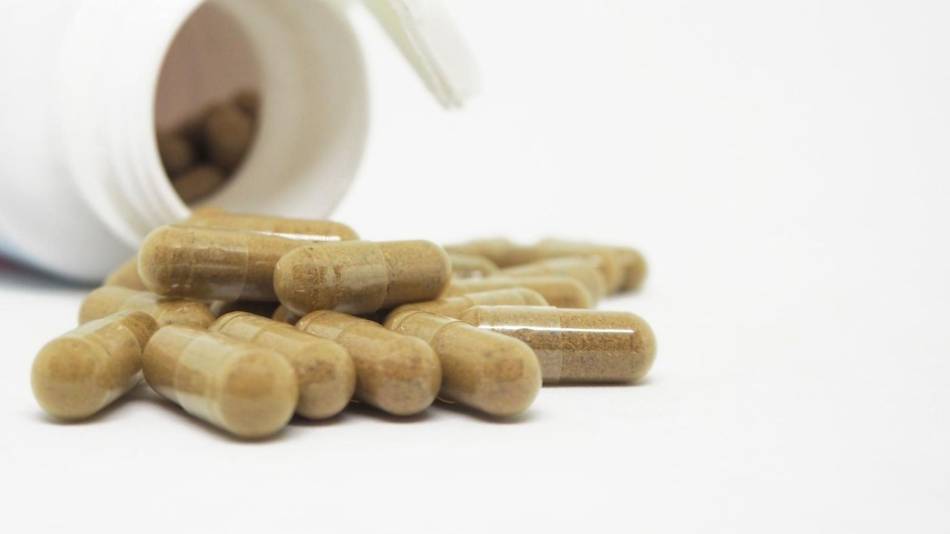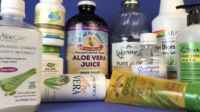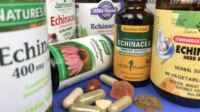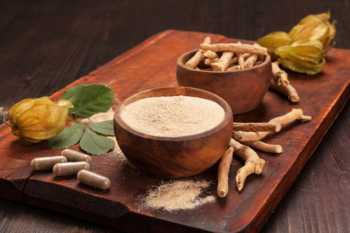Our Members Asked:
With herbal supplements, what is the difference between root powder and root extract? Does it matter?

Answer:
When selecting an herbal supplement, you should be guided by clinical studies showing a benefit using a particular type of plant preparation. Things you need to be clear about are 1) the name of the plant and its species, 2) the part of the plant, e.g., the root, leaf, flower or bark, and 3) whether the product was made of the whole plant part (such as root powder, which is dried root made into a powder), or just key compounds extracted from that part of the plant (i.e., a root "extract") which are typically provided as a dried powder or liquid.
In most cases, you will be looking for an extract, in which case you will also need to know the concentration or percentage (%) of specific compound(s) to which the extract should be "standardized" since there are many types and concentrations of extracts. Supplements made of whole plant plants, like root powder, are typically not standardized like extracts.
The "ConsumerTips" section of every Product Review on ConsumerLab.com, including those below, provides this information, as well as other information about dosage, how and when to take the supplement, potential side effects, and interactions with drugs and other supplements. Of course, you'll also see whether ConsumerLab.com testing found products from popular brands of supplements to contain the listed ingredient(s) and meet additional criteria of product quality.
Here's a quick summary of popular herbal supplements, showing the type of preparation typically used:
| Herbal Supplement | Form Commonly Used Clinically |
| Aloe | Gel from inner portion of leaf or purified juice from whole leaf |
| Ashwagandha | Root powder or root extract |
| Bilberry | Berry extract |
| Black Cohosh | Root (rhizome) extract |
| Black Currant, Borage, Evening Primrose, Flax | Seed oil |
| Boswellia | Extract of gum resin |
| CBD (cannabidiol) | Extract of flowers, stems and leaves |
| Cinnamon | Extract of bark or bark powder |
| Cranberry | Fruit powder |
| Echinacea | Extract of aerial (above ground) parts |
| Elderberry | Fruit powder or extract |
| Garcinia | Extract of fruit rind |
| Garlic | Bulb powder or extract |
| Ginkgo | Leaf extract |
| Ginseng (Asian and American) | Root powder or extract |
| Green Coffee Bean | Bean extract |
| Green Tea | Leaf extract |
| Maca | Root (rhizome) powder |
| Milk Thistle | Seed extract |
| Olive Leaf | Extract of leaf |
| Rhodiola | Root powder or extract |
| Saw Palmetto | Berry extract or powder |
| St. John's Wort | Extract of aerial (above ground) parts |
| Turmeric (curcumin) | Root (rhizome) powder or extract |
| Valerian | Root extract or powder |
Whether you prefer an herbal extract in liquid or powder form may depend on factors such as ease of swallowing and ability to adjust the dose (see our article about the pros and cons of liquid vs. other types of supplements).
If you are interested in fungi-based supplements, such as reishi or lions' mane, be aware that these can be made from the fruiting body (the part the grows above ground, also known as the "mushroom") and/or the mycelium (the "root-like" portion that grows below ground). Either part may be sold as dried, ground powders or extracts.
Join today to unlock all member benefits including full access to all CL Answers and over 1,400 reviews.
Join NowAlready a member? Sign In Here.
Join now at www.consumerlab.com/join/









Rob T
September 07, 2016This important tip bears repeating.
The benefits to be derived from herbal supplements can vary greatly with the part or parts of the herb, how it is refined and/or concentrated, and even what other substances are formulated with it. The variations in biological value come not only from differences in concentration but from how well the particular formulation is assimilated. Many herbal supplements are not assimilated well in their basic form.
In perusing this list, I see at least seven herbs for which the consumer will find formulations that are virtually useless in the quantities or forms provided. If I could follow only one indicator, I would choose relative price within the range of options offered by a reputable brand sold by a reputable vendor. If the vendor is selling four different formulations of Ashwaganda or Curcumin within a single brand it is likely (but not certain) that the most expensive formulation is the best. Once you have determined that formulation, you can shop across brands and vendors to meet your needs.
A better strategy is to do you homework first with a service such as ConsumerLab.com and then do you shopping.
Reply to this post…